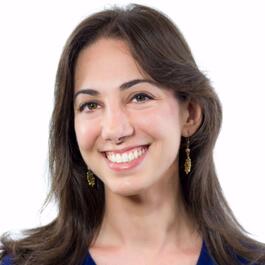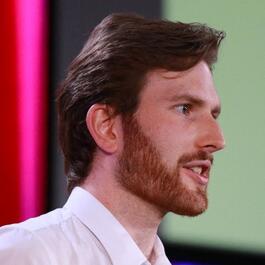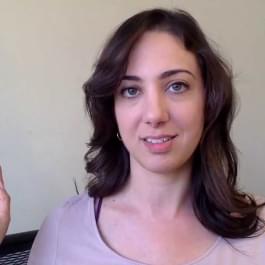
#7 - Julia Galef on making humanity more rational, what EA does wrong, and why Twitter isn’t all bad
The scientific revolution in the 16th century was one of the biggest societal shifts in human history, driven by the discovery of new and better methods of figuring out who was right and who was wrong. Julia Galef - a well-known writer and researcher focused on improving human judgment, especially about high stakes questions - believes that if we could again develop new techniques to predict the future, resolve disagreements and make sound decisions together, it could dramatically improve the world across the board. We brought her in to talk about her ideas. This interview complements a new detailed review of whether and how to follow Julia’s career path. Apply for personalised coaching, see what questions are asked when, and read extra resources to learn more. Julia has been host of the Rationally Speaking podcast since 2010, co-founder of the Center for Applied Rationality in 2012, and is currently working for the Open Philanthropy Project on an investigation of expert disagreements. In our conversation we ended up speaking about a wide range of topics, including: * Her research on how people can have productive intellectual disagreements. * Why she once planned to become an urban designer. * Why she doubts people are more rational than 200 years ago. * What makes her a fan of Twitter (while I think it’s dystopian). * Whether people should write more books. * Whether it’s a good idea to run a podcast, and how she grew her audience. * Why saying you don’t believe X often won’t convince people you don’t. * Why she started a PhD in economics but then stopped. * Whether she would recommend an unconventional career like her own. * Whether the incentives in the intelligence community actually support sound thinking. * Whether big institutions will actually pick up new tools for improving decision-making if they are developed. * How to start out pursuing a career in which you enhance human judgement and foresight. Get free, one-on-one career advice to help you improve judgement and decision-making We’ve helped dozens of people compare between their options, get introductions, and jobs important for the the long-run future. **If you want to work on any of the problems discussed in this episode, find out if our coaching can help you:** APPLY FOR COACHING Overview of the conversation **1m30s** So what projects are you working on at the moment? **3m50s** How are you working on the problem of expert disagreement? **6m0s** Is this the same method as the double crux process that was developed at the Center for Applied Rationality? **10m** Why did the Open Philanthropy Project decide this was a very valuable project to fund? **13m** Is the double crux process actually that effective? **14m50s** Is Facebook dangerous? **17m** What makes for a good life? Can you be mistaken about having a good life? **19m** Should more people write books? Read more...
From "80,000 Hours Podcast"




Comments
Add comment Feedback